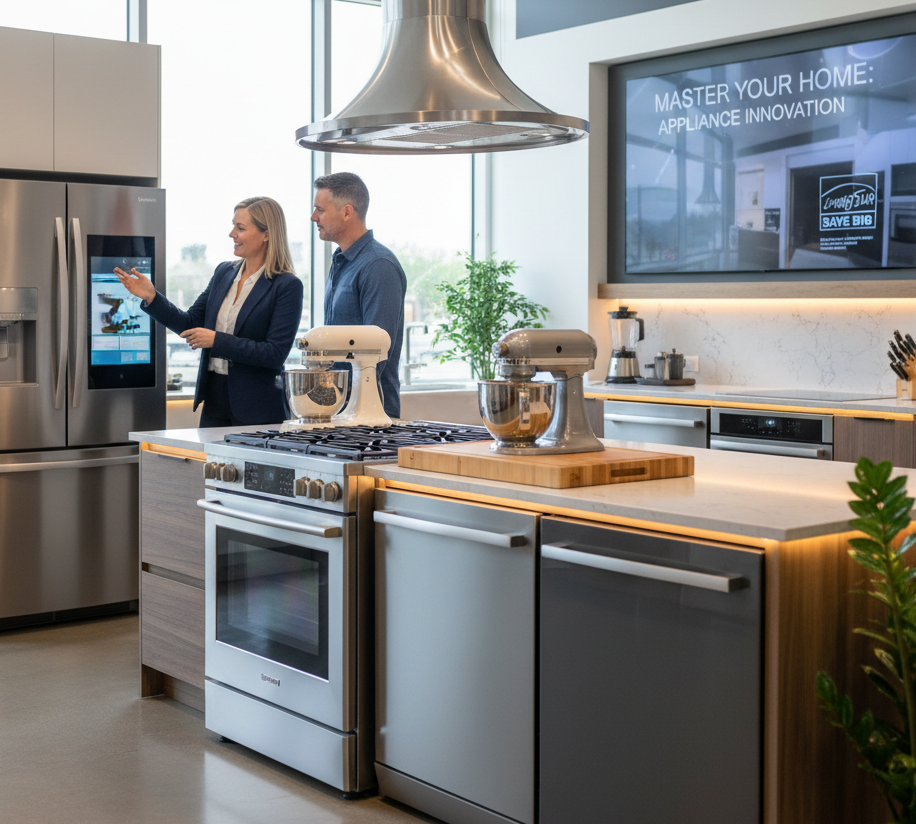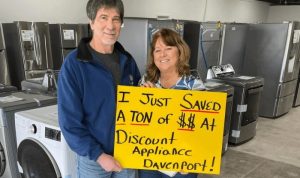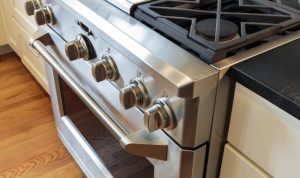In today’s fast-paced world, Home & Kitchen Appliances are more than just conveniences; they are essential components of modern living. From keeping our food fresh to simplifying daily chores, these devices have become indispensable. This comprehensive guide delves into the dynamic world of Home & Kitchen Appliance sales and transactions, offering insights for both consumers seeking the best deals and businesses aiming to thrive in this competitive market. We’ll explore market trends, consumer behavior, effective sales strategies, and the seamless transaction processes that define success in this sector.
The Evolving Landscape of Home & Kitchen Appliances
The Home & Kitchen Appliance market is constantly innovating. Smart appliances, energy-efficient models, and aesthetically pleasing designs are no longer niche products but mainstream expectations. Consumers are increasingly looking for appliances that not only perform their basic functions but also integrate into their smart homes, reduce their carbon footprint, and complement their interior décor.
- Smart Technology Integration: Refrigerators that create shopping lists, ovens that can be controlled remotely, and dishwashers that automatically select the best cycle are becoming standard. This integration of AI and IoT (Internet of Things) is a major driver of sales.
- Energy Efficiency: With rising energy costs and growing environmental consciousness, appliances with high energy efficiency ratings (e.g., ENERGY STAR certified) are highly sought after. This translates into long-term savings for consumers and a positive environmental impact.
- Design and Aesthetics: Appliances are no longer hidden away; they are often focal points in kitchen and home designs. Stainless steel, matte finishes, and customizable panels are popular choices that appeal to design-conscious buyers.
- Sustainability and Durability: Consumers are increasingly valuing appliances built to last and made with sustainable materials. This shift reflects a desire for quality over disposability.
Understanding the Consumer Journey: From Need to Purchase
The journey a consumer takes before purchasing a Home & Kitchen Appliance is multifaceted and often involves extensive research. Understanding this journey is crucial for businesses to effectively position their products and services.
- Awareness: The consumer realizes a need (e.g., old refrigerator breaks down, moving into a new home, desire for an upgrade). They might start seeing advertisements or hearing about new products.
- Research & Exploration: This is often the most critical stage. Consumers will typically:
- Search Online: Use search engines like Google to look for product reviews, comparisons, best brands, and local retailers. Keywords like “best refrigerator 2024,” “energy-efficient washing machine,” or “smart kitchen appliances reviews” are frequently used.
- Visit Retailer Websites: Explore product catalogs, specifications, and pricing.
- Read Reviews: Consult independent review sites, consumer forums, and product pages for user experiences and ratings.
- Watch Videos: YouTube tutorials and product demonstrations play a significant role.
- Consideration & Comparison: Consumers narrow down their choices based on features, price, brand reputation, warranty, and available promotions.
- Decision & Purchase: Once a decision is made, the consumer proceeds to purchase, which can happen online or in a physical store.
- Post-Purchase Experience: This includes delivery, installation, customer service, and warranty claims. A positive post-purchase experience can lead to repeat business and positive word-of-mouth.
Effective Sales Strategies in the Appliance Market
To succeed in Home & Kitchen Appliance sales, businesses must adopt a multi-channel approach that caters to the modern consumer.
- Robust Online Presence (E-commerce & SEO):
- Optimized Product Pages: High-quality images, detailed descriptions, specifications, customer reviews, and clear pricing are essential.
- Search Engine Optimization (SEO): Using relevant keywords in product descriptions, blog content, and meta tags helps rank higher in Google searches. For instance, an article about “how to choose the right dishwasher” can attract organic traffic.
- User-Friendly Website: Easy navigation, fast loading times, and a seamless checkout process reduce bounce rates and improve conversion.
- Mobile Responsiveness: A significant portion of online searches and purchases occur on mobile devices, making a mobile-optimized website non-negotiable.
- Compelling In-Store Experience:
- Knowledgeable Sales Staff: Employees who can demonstrate products, explain features, and answer technical questions build trust.
- Interactive Displays: Allowing customers to touch, feel, and even test appliances (e.g., seeing a refrigerator’s interior or hearing a dishwasher’s noise level) enhances the buying experience.
- Showroom Layout: Organized and well-lit showrooms that group similar products make comparison easier.
- Targeted Marketing & Advertising:
- Digital Advertising: Google Ads, social media advertising (Facebook, Instagram, Pinterest), and display ads can target specific demographics based on interests, location, and past search behavior.
- Content Marketing: Blogs, buying guides, “how-to” articles, and video reviews provide valuable information and establish the brand as an authority.
- Email Marketing: Building an email list allows for direct communication about promotions, new arrivals, and exclusive offers.
- Competitive Pricing & Promotions:
- Bundling Deals: Offering discounts when multiple appliances are purchased together (e.g., a kitchen suite).
- Seasonal Sales: Black Friday, Cyber Monday, and holiday sales are crucial periods for appliance retailers.
- Financing Options: Providing flexible payment plans can make high-ticket items more accessible to a wider audience.
- Exceptional Customer Service:
- Pre-Sales Support: Online chat, phone support, and in-store consultations help guide customers.
- Post-Sales Support: Efficient delivery, professional installation services, and responsive after-sales care (warranty, repairs) are critical for customer satisfaction and brand loyalty.
- Easy Returns & Exchanges: A clear and hassle-free policy builds consumer confidence.
Streamlining the Transaction Process
A smooth and secure transaction process is the final step in converting interest into a sale. Any friction at this stage can lead to abandoned carts or lost sales.
- Multiple Payment Options: Offering credit/debit cards, digital wallets (Apple Pay, Google Pay), bank transfers, and financing options caters to diverse customer preferences.
- Secure Payment Gateways: Protecting customer financial data is paramount. Using reputable and encrypted payment processors builds trust.
- Clear Terms & Conditions: Transparent information about pricing, taxes, shipping costs, warranty, and return policies prevents misunderstandings.
- Order Confirmation & Tracking: Immediate email confirmation after purchase and the ability to track delivery status provide peace of mind.
- Efficient Inventory Management: Ensuring that products are in stock and readily available prevents delays and customer dissatisfaction.
- Delivery & Installation Coordination: Seamless scheduling and communication regarding delivery and professional installation services are vital, especially for large appliances.
The Future of Appliance Sales: Personalization & Sustainability
Looking ahead, the Home & Kitchen Appliance market will likely see even greater emphasis on personalization and sustainability. AI-driven recommendations based on user habits, customizable appliance features, and a stronger focus on repairability and circular economy principles will shape future sales strategies.
In conclusion, navigating the Home & Kitchen Appliance market requires a keen understanding of evolving consumer needs, effective sales and marketing strategies, and a commitment to providing an exceptional end-to-end customer experience. By embracing technology, focusing on sustainability, and prioritizing customer satisfaction, businesses can not only drive sales but also build lasting relationships in this essential industry.










